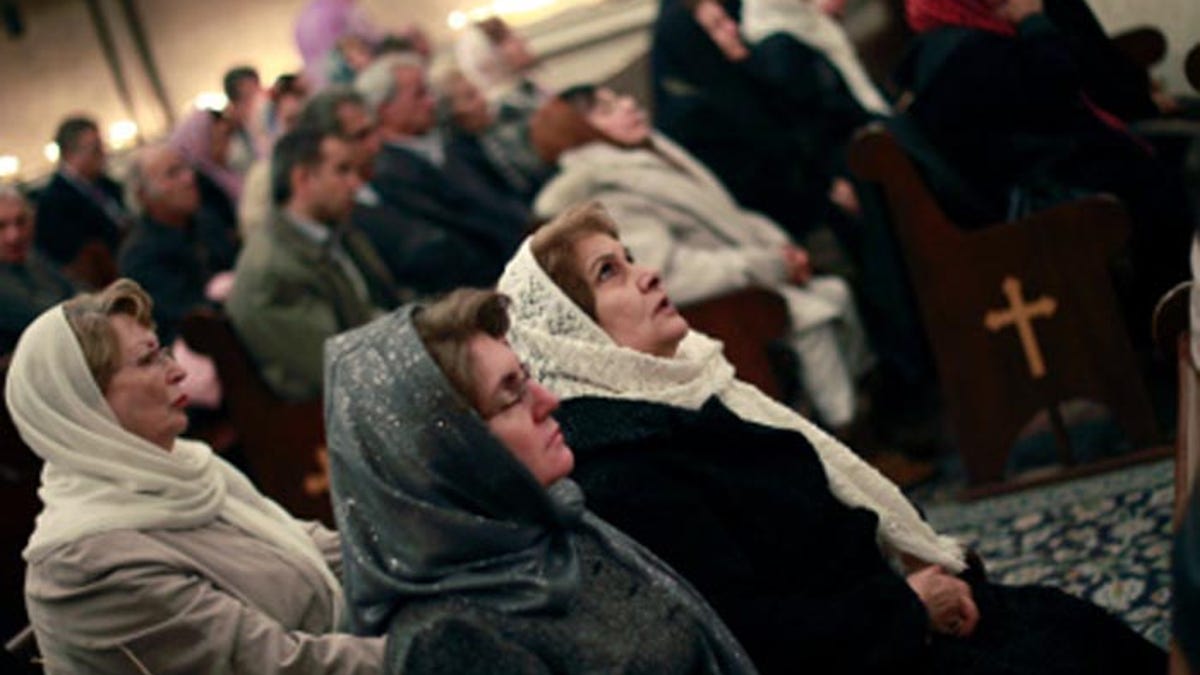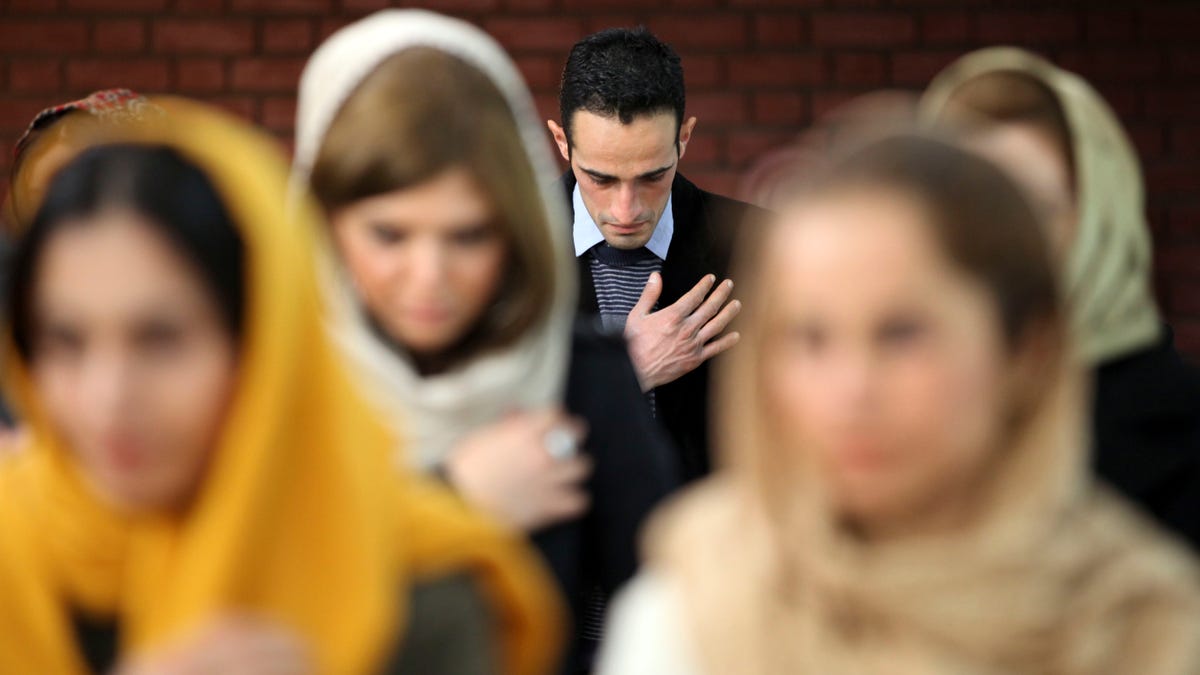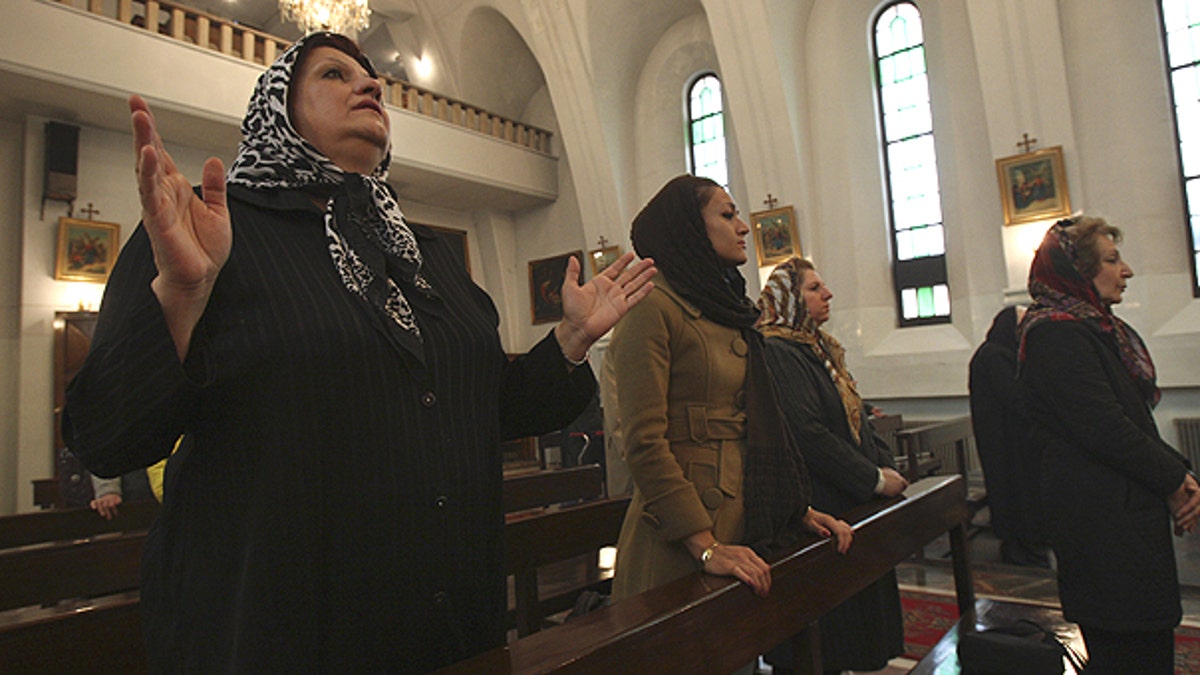
Christians in Iran are being driven to worship in secret house churches, and even there, they may face arrest. (Reuters)
Despite the Iranian regime’s best efforts to stop the spread of Christianity, a large underground church movement is growing.
Hundreds of Iranian citizens have been converting to Christianity, and many are being baptized in large ceremonies in underground churches held in private homes across the country. This month, Christian ministry ELAM estimated that more than 200 Iranian and Afghans were secretly baptized in a service just across the Iranian border.
“It’s an astronomical increase,” Mani Erfan, CEO and founder of CCM Ministries, which has been involved in Iran’s underground church movement for more than two decades, told FoxNews.com. “And it’s been predominately young people. We call it an awakening.”
Erfan says much of Iran’s young population has grown tired of the regime’s oppressive religious rule, which often distorts Islamic teachings.

Monday, Dec. 24, 2012: Iranian Christians pray in the Christmas Mass at the Saint Mary Chaldean- Assyrian Catholic church, in downtown Tehran, Iran. ((AP Photo/Vahid Salemi))
“The youth have become restless and have looked toward an alternative to the regime and Islam,” he said. “The youth find Western culture and the Christian church very appealing.
"It’s become a counter-culture," he added. "A counter-revolution to the [1979 Iranian] Revolution.”
Erfan adds that the evangelical movement began in the wake of 9/11 but has steadily increased in the past three to four years and that experts predict that by 2020, the Christian population in Iran will top 7 million -- or 10 percent of the total population.

Dec. 25: Christians attend the Christmas Mass at the St. Grigor Armenian Catholic church in Tehran, Iran. (AP)
“That’s a paradigm shift,” he said. “It would change the dynamic of the country and the region.”
The news out of Iran may provide a glimmer of hope for the Christian community elsewhere in the Middle East.
With the rise of extremism in neighboring Iraq and Syria, Christians have been under siege in the region due to ISIS. The Christian population in Iraq has plummeted from 1.5 million in 2003 to current estimates of 275,000, and could be gone for good within five years, according to a report last summer. The dwindling numbers have been due to genocide, refugees fleeing to other countries and forced conversions.
Much of Iran’s Christian population is forced to obtain religious materials and teachings from satellite TV, or social media forums like Telegram and Instagram and gather for worship services in the homes of pastors and other clergy members.
“The [Iranian] government says that they are basically illegal gatherings,” David Yeghnazar, executive director of Elam Ministries, told FoxNews.com. “They are forced to meet in these house churches which the regime deems to be unlawful.”







































